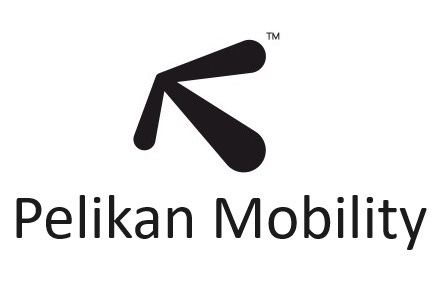EUVC Newsletter 14.04.24 | More fund modelling, David beats Goliath & LPs reign
Join us as we digest the week's news in European VC 📰
This week, European venture capital experienced fluctuations across sectors, indicating a cautious but active market. While some sectors like AI and healthcare continue to attract significant investments, others face challenges due to economic uncertainty and regulatory changes. But before diving in, let’s welcome 443 LPs, VCs & Angels who have subscribed since our last newsletter. Join the 23,322 that do & share it with your besties.
Fund Modelling Workshop: Assumption Sheet Construction
This session builds on our previous fund modelling sessions by guiding you through creating a VC fund model assumptions sheet, focusing on Core Assumptions, Asset Development, and Equity Valuation Dynamics. Receive a template a week before, and learn how these assumptions influence fund performance based on your registration details.
Highlights
Overall, the European VC market is cautiously optimistic, with selective investment in high-growth sectors despite uncertainties related to geopolitical tensions and economic headwinds.
📉 Small is Beautiful: There's a notable decrease in the formation of new 'megafunds' as investors opt for smaller, more focused investment strategies. This shift reflects broader market caution and a reevaluation of investment approaches post-2020's investment frenzy.
🌱 Seed Stages Slowing Down?: Recent data suggests that seed and early-stage funding rounds are taking longer to close, hinting at increased investor scrutiny and a possible shift towards more mature investments.
🚀 Tech IPOs: A Hopeful Horizon: Tech IPOs have shown some resurgence, potentially signaling a healthier exit environment for startups in 2024.
🌟 AI Surge Continues (what’s new?!): Investment in AI startups remains robust, with numerous European VC firms increasing their stakes in this sector. The focus on generative AI and machine learning applications is particularly strong, aligning with global tech trends.
💡 Green Tech Gains Traction: Sustainability-focused startups, especially in renewable energy and green technologies, are seeing an uptick in investments 👉 we’re soon announcing an investment in this space.
📊 Data Analytics: The New Gold?: Venture capital interest in data analytics firms is soaring, driven by the demand for real-time data processing and AI integration.
🏥 Healthcare’s Steady Beat: Despite some volatility, the healthcare sector remains a mainstay for VC investments, particularly in biotech and digital health solutions.
🚗 Mobility and EV Innovations: European startups in the electric vehicle (EV) and mobility sectors continue to draw significant VC attention, driven by policy support and consumer demand for sustainable transport solutions.
🔗 Resilience in Blockchain & Crypto: Blockchain technology and cryptocurrencies continue to attract niche investments despite broader market challenges 👉 we’re soon announcing an investment in this space.
🏦 Fintech Evolution: Fintech continues to be a hotbed for VC investments, with developments in digital banking, payments, and insurtech 👉 drop me a line if you’re an angel interested in this space.
🛠️ Industrial Tech Gets a Nod: Investment in industrial technology, particularly automation and IoT, is growing as companies seek efficiency gains in traditional industries like manufacturing and logistics 👉 we’re soon announcing an investment in this space.
📚 EdTech: Learning and Growing: The EdTech sector is gaining momentum with VCs as the demand for online education and lifelong learning platforms increases, driven by changing educational needs post-COVID.
🌐 Skilled Migration Impact: An increase in skilled migration within tech sectors, notably in Spain and the UK, is reshaping workforce dynamics and potentially driving innovation. However, it also introduces complexities around integration and regulatory compliance.
We're determined to create a community for investors tapping into the vast potential of Europe. LP investments underpin our approach, offering access to European tech at scale.
As a member you get:
🌟 Curated investment opportunities, including access-constrained deals.
🤝 Privileged connections with inspiring people in the industry, building strong networks and relationships across Europe.
🔍 Proprietary insights into cutting-edge tech and emerging markets.
📖 Access to best practices, skill development, and valuable insights to enhance your investment expertise.
💸 Exposure and access to the asset class we all love - Venture Capital.
And the best part? You get all of this for FREE, as long as you remain an active and engaged member.
Today’s Shoutout: From Diesel to Digital
Electric Avenue is looking less shocking with Pelikan at the wheel!
Pelikan Mobility, a French startup, is emerging as a pivotal player in the transition of commercial fleets from diesel to electric vehicles (EVs). This transition faces significant barriers, primarily due to the high initial costs and operational complexities associated with managing a mixed fleet of diesel and electric vehicles. To address these challenges, Pelikan Mobility has developed a software platform that optimises the deployment of EVs within commercial fleets, coupled with an innovative leasing solution tailored for commercial EVs. The startup recently secured a €4 million seed investment from Pale Blue Dot, Frst, and Seedcamp (all past and regular EUVC guests btw), signalling strong market interest and investor confidence in their business model.
Pelikan Mobility's core offering is a sophisticated software solution that enables fleet operators to seamlessly integrate electric vehicles into their existing fleets, predominantly powered by diesel.
This platform not only facilitates the registration and data integration of entire fleets but also employs advanced analytics to generate optimization scenarios. These scenarios consider various operational factors such as charging times, energy costs, vehicle range, and parking logistics. By doing so, the platform can predict and enhance the daily operations of mixed fleets, helping companies transition to EVs more smoothly and efficiently.
The economic case for EVs in commercial use is compelling, particularly when considering total cost of ownership which includes both capital expenditures (CapEx) and operational expenditures (OpEx). While EVs generally require higher upfront investment compared to traditional diesel vehicles, they are cheaper to operate over their lifecycle due to lower fuel and maintenance costs. Pelikan Mobility leverages these economics through its platform, which also simulates long-term financial scenarios using digital twins of the fleet. This approach not only aids in operational planning but also helps in assessing the long-term financial benefits of integrating EVs into commercial fleets.
Pelikan Mobility identifies a significant gap in the current market offerings for commercial vehicle leasing, which are predominantly structured around short-term contracts optimized for internal combustion engine vehicles. These traditional leasing models do not align well with the usage patterns and economic benefits of EVs, which are designed to last longer and have different resale value trajectories. Pelikan Mobility proposes extending the duration of leasing contracts for commercial EVs, which would reduce the financial risk associated with the vehicles' resale value and better align with their operational longevity. This approach could fundamentally change how fleet operators finance their vehicle acquisitions and manage financial risks.
As Pelikan Mobility prepares to launch its leasing operations, it aims to raise a debt fund to finance this new endeavor, targeting large commercial customers. With seven customers already using its platform to manage nearly 100,000 vehicles, the company is positioned to significantly influence how commercial fleets adopt electric vehicles. The dual benefits of operational optimization and innovative leasing structures are likely to resonate with fleet managers, particularly those looking to reduce carbon footprints and operational costs. The success of Pelikan Mobility could set a precedent in the commercial vehicle leasing market, potentially catalyzing broader adoption of EVs in commercial fleets across Europe and beyond.
As Pelikan Mobility spreads its wings, here's hoping they electrify the fleet scene faster than a Tesla at a green light!
The Decline of Giants and LPs to the top 👑
Based on PitchBook data
VC has seen a notable transformation, particularly with a significant decrease in fundraising for "megafunds." The first quarter of 2024 starkly contrasts with previous trends where megafunds, typically sized between $5 billion and $10 billion, dominated the market. This shift indicates a change in investor sentiment and strategy, moving from large, bold bets to more measured, cautious investments.
Global venture firms raised only $30.4 billion in the first quarter of this year, a dramatic drop from the $555 billion raised in 2021.
This slowdown can be attributed to several interlinked factors. A key issue is the lack of exit opportunities, such as public listings and acquisitions, which has made it challenging for LPs to recoup their investments. This situation is compounded by increased interest rates, dampening overall return expectations from venture investments. Consequently, LPs have become more conservative in their funding allocations, significantly affecting capital inflow into venture funds.
We’ve covered the cashflow and returns topics from an LP perspective 👇
The pace of closing venture capital deals remains cautious, with fundraising activities experiencing a notable decline. This subdued environment reflects widespread uncertainty, particularly among LPs. In 2023, there was a significant reduction in funds of funds activities, with only $31.7 billion raised—nearly half of the total raised in the previous year. This decline is partly due to the emergence of financial instruments that offer access to a diversified range of private market opportunities with lower entry thresholds.
The decrease in available capital is poised to tighten funding conditions for startups, especially those at the early stages of growth that depend extensively on venture capital. This scenario is expected to create a more competitive funding environment, compelling startups to present more solid business plans and clearer profitability trajectories to secure investment. A notable statistic from this period is that new fund commitments totaled just $9.8 billion, a mere 5.0% of the 2022 annual peak, indicating limited capital available for reinvestment in the market, thereby increasing the pressure on LPs to manage their venture exposure effectively.
Despite high-profile IPOs such as those of Reddit and Astera Labs, the total exit value for the quarter amounted to only $18.4 billion. This modest figure tempers expectations for an imminent increase in distribution rates. The outlook for IPOs in 2024 is positive, with a few large tech IPOs already out the door and a couple more having dropped their S-1 filings - an encouraging sign for future venture exit activity. On the dealmaking side, valuations ticked back up in Q1, driven in part by the strong performance of public markets. However, not all areas of VC are experiencing growth.
The current fundraising difficulties hint at a potential market correction in VC. Insights from a chief investment officer of a major US foundation suggest that the venture industry could contract significantly over the next five years unless returns improve. Last year saw a notable decrease in fundraising, with fund counts dropping by 48.4%, primarily driven by LP concerns regarding the lack of portfolio exits and fluctuations in VC valuations. In 2024, LPs will hold the keys to the fundraising kingdom.
There are some spots of light at the end of the tunnel though. The performance of U.S. venture funds has recently shown signs of improvement despite remaining in negative territory. This recovery may signal a turning point in a fundraising market that has seen substantial markdowns in portfolio values. The one-year rolling IRR provides a clear picture of this trend, improving from a low of -17.9% in Q4 2022 to -9.1% in Q2 2023. This positive movement is influenced by fluctuations in tech valuations and the performance of major tech stocks such as Microsoft, Alphabet, and Nvidia, which are pivotal components of the Nasdaq composite.
The Nasdaq composite, with its heavy concentration of tech stocks, saw a rise of 43% in 2023, and an additional increase of 9% in Q1 2024. This surge significantly impacts venture funds, particularly late-stage and growth-stage firms, which typically adjust their portfolio valuations based on the revenue multiples of similar public companies. However, there exists a notable reporting lag that delays the reflection of these positive market performances in venture fund marks.
LPs are responding to the market dynamics by intensively scrutinizing DPI. This ratio is crucial as it measures how much capital venture capitalists return to LPs relative to the commitments made. The focus on this metric has intensified as LPs seek to understand better and navigate the impacts of current market conditions on their investments.
Weak fundraising figures could lend power to LPs
Despite a declining fundraising environment in 2023, there has been a recent resurgence in private capital fundraising. This renewed momentum is supported by a recovering economy and stabilized interest rates, leading to the closure of funds of varying sizes and strategies. However, challenges remain, such as limited M&A market activity and difficulties in capital gathering due to geopolitical instability.
What about diversity?
VC funding in Europe has experienced significant growth over recent years. However, this increase in funding has not been equally distributed among different demographics of founders. Notably, companies solely founded by women have received a disproportionately small share of the total capital. In the previous year, these companies secured only 1.5% of the total capital invested in venture-backed startups across Europe. This statistic underscores a persistent gender gap in funding allocation within the European VC landscape.
Despite the disparities in funding, there is evidence of positive movement toward more equitable funding practices.
Recent years have seen an upward trend in capital flows toward companies either founded or co-founded by women. The year 2023 marked a significant development with the establishment of multiple women-led venture funds and incubators specifically designed to support female entrepreneurs. These initiatives are critical in fostering a more supportive ecosystem for women in the European VC market.
For much more about the fundraising market and how to navigate it, make sure to sign up for early access to our State of European VC Fundraising report on floww.io/raise and watch our webinar from this week below 👇
🗓️ The VC Conferences You Can’t Miss
There are some events that just have to be on the calendar. Here’s our list, hit us up if you’re going, we’d love to meet!
0100 Conference Europe | 📆 16 - 18 April | 🌍 Amsterdam, Netherlands
TechChill Riga 2024 | 📆 17 - 19 April | Riga, Latvia
0100 Conference CEE 2024 | 📆 14 - 16 May | 🌍 Prague, Czech Republic
SuperVenture | 📆 4 - 6 June | 🌍 Berlin, Germany
Nordic LP Forum & TechBBQ | 📆 September | 🌍 Copenhagen, Denmark
North Star & GITEX Global | 📆 14 - 18 Oct | 🌍 Dubai, UAE
GITEX Europe 2025 | 📆 23 - 25 May 2025 | 🌍 Berlin, Germany
Anything else you’d like me to cover on the newsletter? 👇








